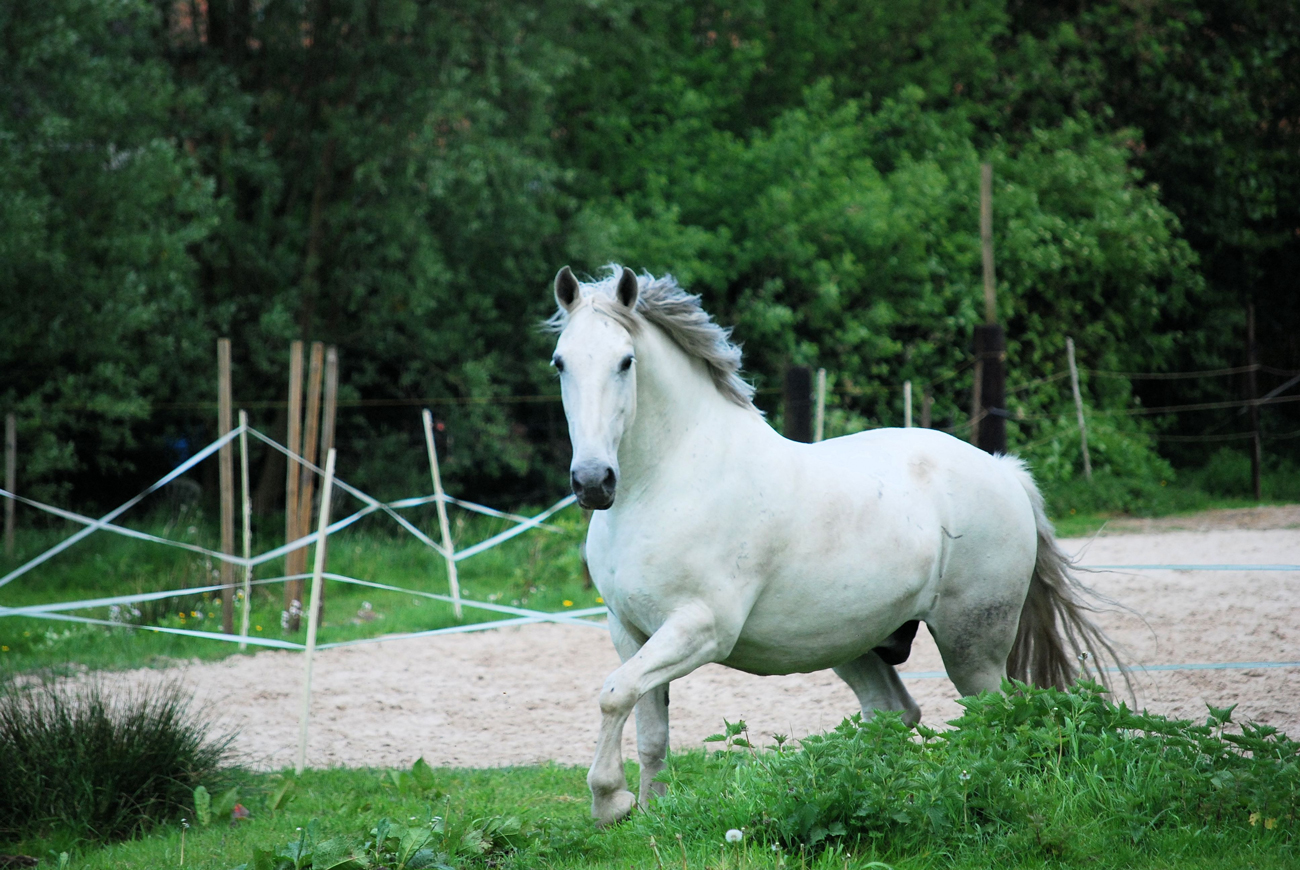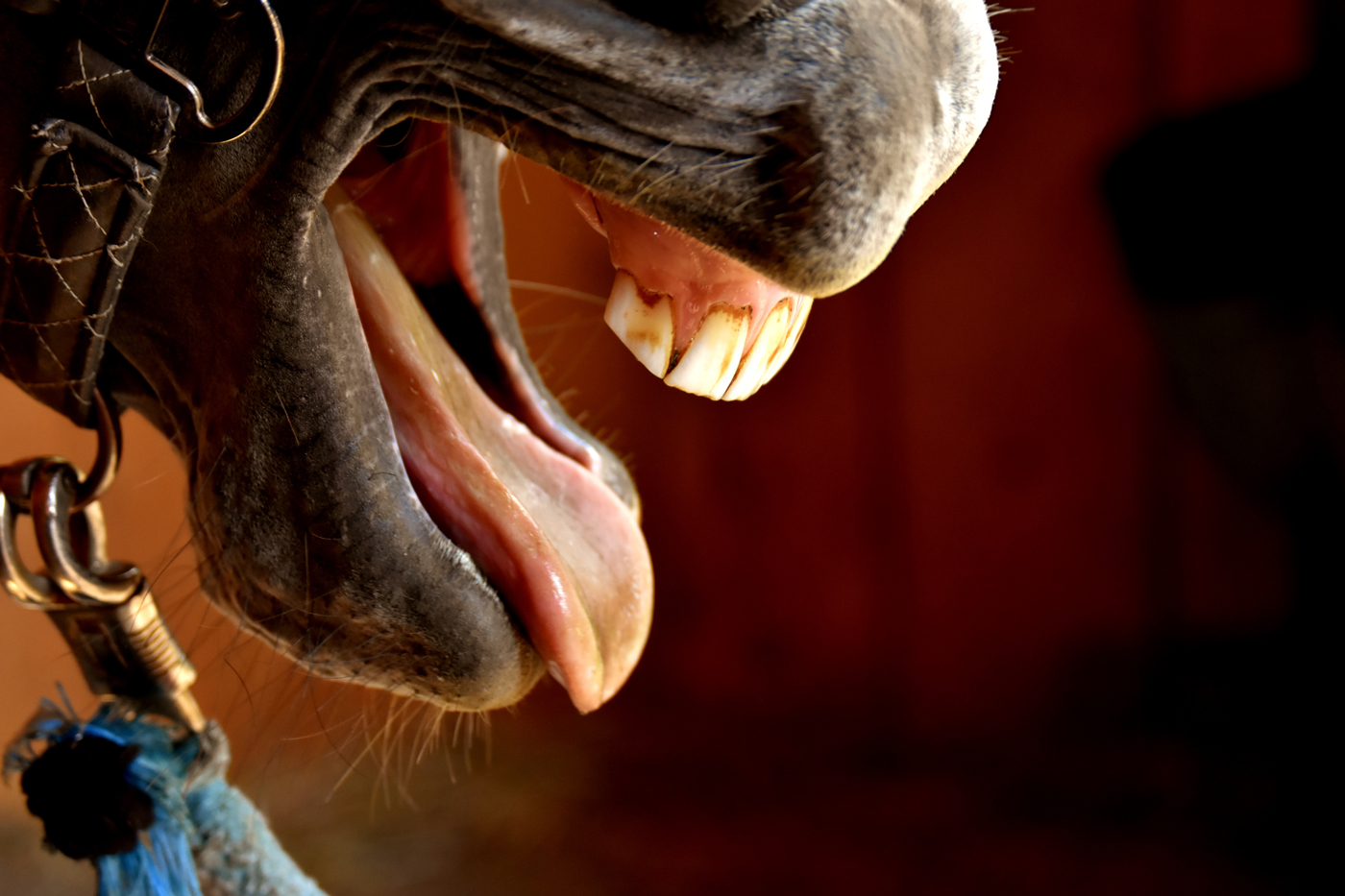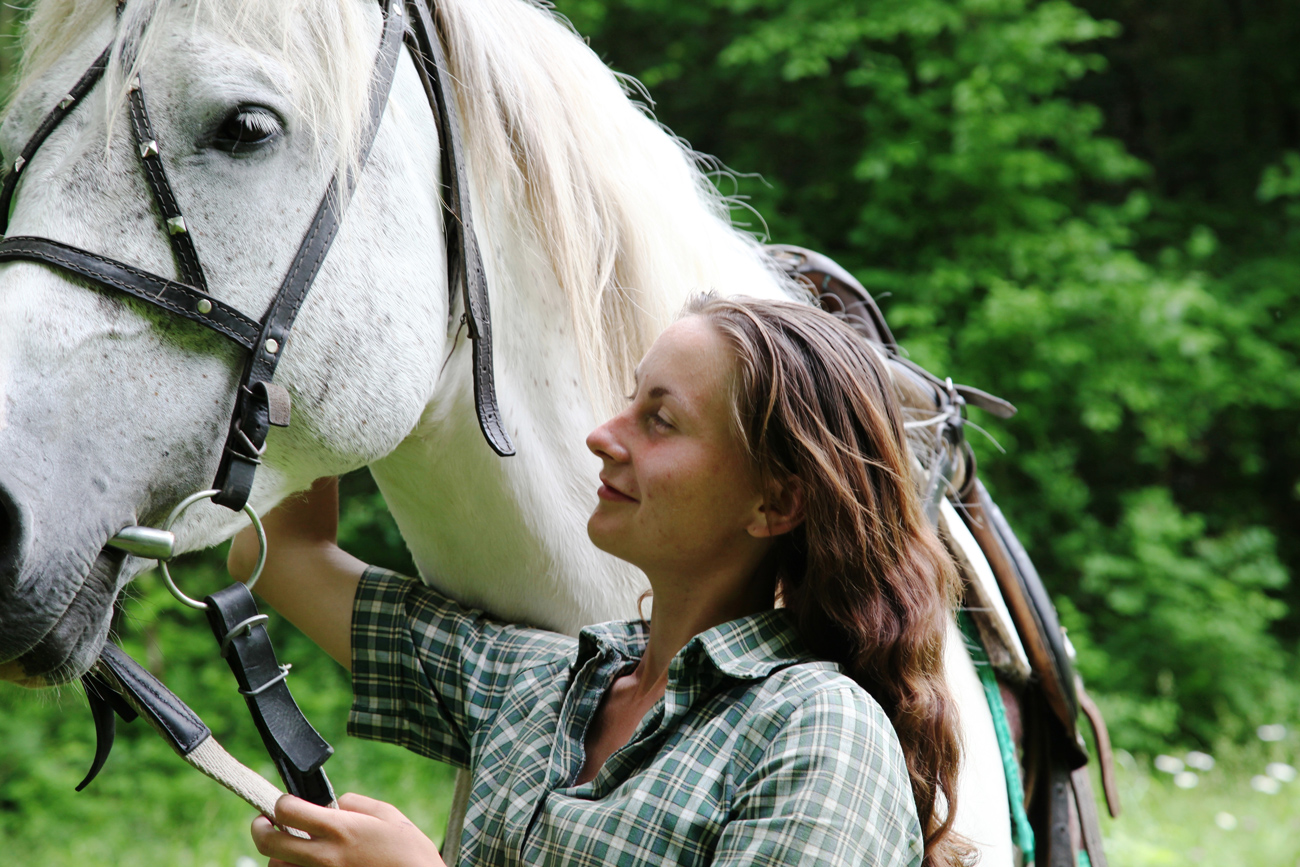Horses are sensitive and sociable creatures, and a friendly field mate is a great bonus for any horse to have in their life. From someone to watch out for potential threats and provide company at mealtimes to swatting flies and scratching hard-to-reach places – the benefits are endless.
But sometimes the close bonds that develop between friendly horses can become problematic, with either one or both horses becoming very anxious when you need to separate them. This is sometimes called separation anxiety.
In this article, we’ll reveal our top tips for ensuring this problem doesn’t arise in the first place and show you how to gently separate horses when it does.
From playful foals to dependable veterans, having adequate insurance for horses in place is vital for responsible horse owners.
Call the caring team at Equesure and discuss the options available to you and your equine friend. Whatever your needs or budget there’s bound to be a suitable insurance solution for you.
What is separation anxiety?
Most horse owners will come across separation anxiety at some point in their equestrian lives.
This is when your horse becomes fearful, stressed or anxious when separated from another horse or group of horses – even just for a short time. The problem can be either with the horse being left behind in the stable or field, or the horse going away, or even both!
Separation anxiety can cause a horse to neigh, scream, charge around or otherwise become very challenging to handle. But, while some degree of separation anxiety can be expected, how much of a problem it becomes really depends on a case-by-case basis.
For example, in a mild case it may simply be an annoyance to the horse owner, but not a significant problem. Perhaps they just call for a few minutes and appear slightly agitated but then soon settle down.
However, for some horses and their owners, separation anxiety can create a dangerous situation – particularly if it occurs in a stable or other confined space.

Why do horses become so inseparable?
As herd animals it’s understandable horses will form strong bonds between each other. It’s completely natural as in the wild it could well make the difference between life and death.
From groups of mares and their foals to bands of young males, these wild groups offer their members companionship, better access to resources, and protection from predators. Indeed, individual horses that become separated from such groups soon become easy prey.
And despite thousands of years working with humans, horses still haven’t forgotten these invaluable survival lessons. Even away from the dangers their ancient wild ancestors lived with, our domestic horses still form incredibly tight bonds with certain friends. So, why is this?
Unfortunately, it’s impossible to say whether or not your horse is likely to form these bonds. The particular personalities and temperaments of the horses involved, the social setup in the field or stables and the level of stress in their lives can all play a significant part.
Perhaps the most common situation where such bonds will form is where two horses have lived as a pair together for many years with only each other for company.
However, some horses, particularly those who are highly strung or emotionally needy, can be more prone to forming inseparable attachments. Indeed, these have been known to form after just a few hours. Add to this a stressful situation and it’s likely there’ll develop a problem.
Separation anxiety might not appear all of the time and in all situations. Some horses will be fine being the one who leaves, but will get stressed if they’re left behind. While others will instead find leaving most stressful. There are even some horses who get stressed whichever way around.
In some horses, separation anxiety may only arise in certain situations such as only when they’re on a hack. Or only when they’re stabled.
Symptoms of separation anxiety – what to look out for
While many horses may experience an element of anxiety when separated from equine friends, keep an eye out for the following behaviours. These could suggest a more significant problem that needs addressing.
- Increased vocalisation – Calling, whinnying, neighing and even screaming out in an effort to contact their friend.
- Pacing and fence walking – Pacing and walking up and down fences when separated.
- Weaving and box walking – Walking around in circles, weaving from side to side or swaying.
- Bolting – Suddenly running off. This can be particularly dangerous if the horse is being led or ridden.
- Rearing, bucking and kicking out – Striking or kicking out with either their front or back legs.
- Pawing – Digging at the ground whether in their stable or when turned out.
- Shaking or trembling – Whether being ridden, led or even just while standing.
- Sweating – Depending on the circumstances a horse may sweat excessively. Or have an increased heart rate.
- Unwillingness to eat or drink – Loss of appetite or not drinking while separated from their friend.
In some cases where separation anxiety has become significant, these behaviours could lead your horse to accidentally hurt themselves. Or even hurt you!
After all, horses are gentle but also powerful creatures. When frightened or very anxious they could easily cause significant harm or damage.
From happy hackers to competition horses and veterans, Equesure can provide horse insurance cover for any type of horse.
Give us a call on 01480 220089 and chat through your options with one of our experienced team.

Top tips for separating friendly horses
It’s obviously great to see horses getting on so well with each other and it can be tempting to leave them together forever.
However, when that causes separation anxiety it isn’t healthy and simply isn’t going to work if you ever want to ride or compete just one of them.
Also, there could well come a time when you need to transport one of the horses elsewhere.
From emergency vet appointments to moving home there are many times when horses will need to be separated. Follow some of these top tips on how to do it.
Know your horse
This is perhaps very obvious. But there really is no one-size-fits-all approach to separating friendly horses.
It depends on a whole variety of issues. Tailor your approach to the individual horses and the circumstances.
An important point to note is if horses have bonded because of a stressful situation then you must deal with the source of stress before separating them.
You might find once this has been dealt with, the need for the bonds lessens and the anxiety also decreases.
Start early in life
Preventing the problem from occurring in the first place is a good place to start.
By exposing a young horse to separation from their field mates at an early age you’ll get them used to such comings and goings in an organised gradual way. They’ll then be better able to adjust to such routine changes later in life.
Young horses can become stressed by separation, so only do this gradually. Just as with their human companions, a frightening event in their early life might make them more anxious in future.
Keep routine varied
Horses love routine and this is often a useful part of everyday horse care. However, being too rigid in their routine can mean a horse becomes overly reliant on things never changing.
Varying in what order you turn out horses or what time you ride them can mean they become more relaxed and happier when changes do occur.
Take things step by step
Just as with everything equine related, it doesn’t do to rush. Take everything step by step, making sure any obstacles are overcome before moving on to the next.
Have a plan so you know when each step has been accomplished. Separating horses will take as long as it takes.

Keep up the frequency
Separating your horses every now and again is unlikely to improve the situation significantly. But if you do it three or four times a week, you’ll soon notice a difference. By keeping up the frequency you can gradually increase the time and distance between the friends without them even noticing.
Stay calm
Try to stay calm, particularly when your horse displays any anxious behaviour. Yelling or getting emotional never works with horses and will only make matters worse.
Stay positive
Whatever progress you make, it’s still progress. Even if you’re just leading them away from their friend for a few moments and feeding them a handful of treats.
Always look to make a positive connection for the horse with each separation step you all take. No matter how small the step!
Try to avoid pairs
Horses kept in pairs whether trailered, stabled or turned out have a tendency to form these strong bonds. It’s often more manageable to keep horses in groups of at least three.
That way you can always take one out without leaving the other alone and anxious.
Provide a distraction
Some hay or a snack ball is always a good idea to distract the horse left behind. After all, you don’t want them calling to your horse and making them feel anxious.
Try some simple ground exercises
Taking your horse through some simple ground exercises in a safe, fenced area not far from their friend is a useful way to begin separation.
The key is to get the horse listening to you and behaving well even when separated from their companion. There are so many benefits to be had from going back to the basics of horse education.
Keep it short and sweet
When starting off make sure to keep any training exercises short and sweet.
You can gradually lengthen the time they’re spending apart, the distance between them and the complexity of the tasks.
Always keep rewards on hand so they associate the training and being apart from their friend with something positive.
Feeding time is a good time to separate field pals
To separate horses in a field, begin by using a strip of electric fencing to keep them apart during feeding time. Once they have finished feeding then reunite them.
Over time you can not only increase the time spent apart but you can also swap which horse goes into which part of the field.
A possible next step is to introduce another strip of electric fencing so you can gradually increase the distance between them over time. Being able to still see each other should help them both to build confidence.
Get a companion animal
While horses do tend to prefer their own kind when it comes to companions, some have paired very well with other species including goats, donkeys, cows, poultry, llamas and even cats.
Particularly if your horse suffers from separation anxiety whilst stabled or during transport then getting another animal companion might work.
Speak to your vet about medications or supplements
Quick fixes are in short supply when it comes to separation anxiety in horses. But speak to your vet about whether they can suggest some medications or supplements that can be used to calm your horse when separated. Horse insurance may be able to help towards the cost of treatment.
Remember, horses need social contact
As part of their physical and emotional wellbeing many horses need social contact. It’s important to still provide them with plenty of turnout company, rather than denying them this natural social connection.
Horse insurance through Equesure
Every horse friendship and every situation is different. Equesure’s team of insurance specialists know this, and will use their over 60 years of combined equestrian knowledge to help tailor a bespoke plan suited to your horse’s needs.
Features and benefits of horse insurance can include:
- Vet’s fees cover up to £4,500 per incident but with unlimited number of claims within the policy year.
- Personal dental cover available on some policies up to £1,750 if required.
- An additional discount for insuring more than one horse.
- Personal accident cover up to £20,000.
- Public liability cover up to £5 million.
- Loss of use cover available with all insurers.
- Cover for death, theft or straying of horse.
Call our team today to discuss your needs and get a quote for horse insurance.
Policy benefits, features and discounts offered may very between insurance schemes or cover selected and are subject to underwriting criteria. Information contained within this article is accurate at the time of publishing but may be subject to change.






